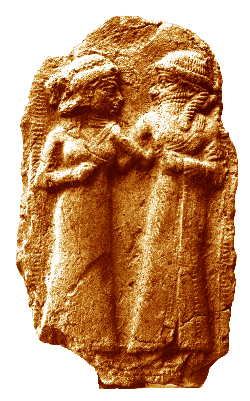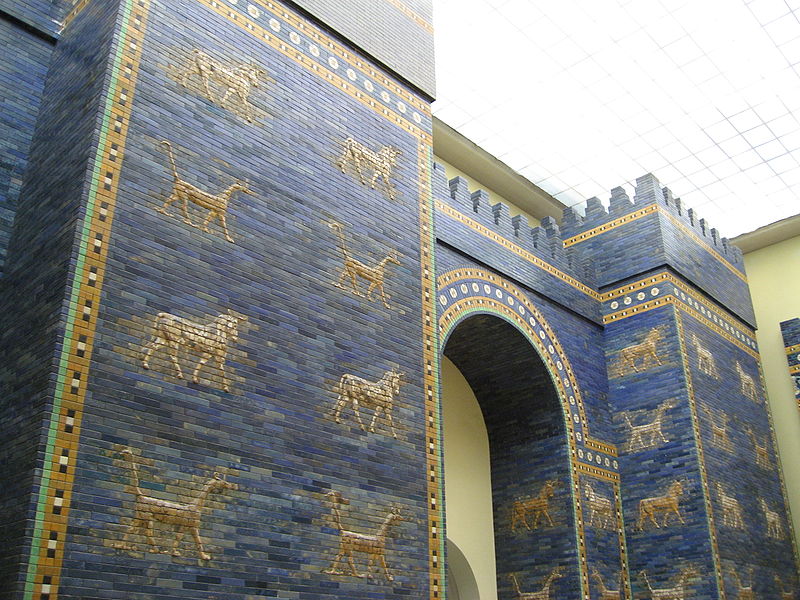Marriage customs in Ancient Babylon
Ancient Babylonia was a society, which, although it did not know coinage, was extremely wealthy due to their outstanding skill in barter and trade. The fertile lands along the Euphrates were ideal for the growing of more than sufficient crops for the population, and soon a profitable trade system sprung up with neighboring lands. Foodstuffs were traded for Copper from Oman; Carnelian stone from the Indus valley; Tin, Silver and Gold from Anatolia; and lapis lazuli from Afghanistan.
This ability to barter also extended into Babylonian society, and this can be clearly demonstrated in their attitude towards betrothal and marriage. Many surviving cuneiform tablets having provided modern archaeologists with a good knowledge of the customs involved.

Initially, Babylonian marriages were generally a contract between families. One family contracts to supply a bride and the other to provide a groom. There was never an obligation to the families involved to specify exactly who the participants would be-just that they would supply either a bride or groom. Once the contract had been arranged the groom’s family would be expected to put down a deposit in the form of Sheep, barley flour, loaves of bread and a designated quantity of beer. The bride’s family would then make a similar down payment of the same items. These down payments were repayable once the marriage ceremony took place.
The next step was for the girl to move into the house of her perspective Father-in-Law where she would reside until the day of the ceremony, after which the “Happy Couple” would move into their own home. There were a number of legal cases reported where the Father-in-Law would seduce the young lady in question. If this was proved the gentleman accused might be liable for a stiff fine in silver, if the offense was conducted before the wedding, or sentenced to death by drowning if after. In either case the marriage would be deemed void and the down payments refunded.
Virginity was another important factor in the arranging of a Babylonian marriage. Any doubts on the potential bride’s virginity would be settled in court, evidence being provided by examination by a number of older women who would testify before the court. Non virginity being deemed a satisfactory ground for cancelling the marriage contract.
The Babylonian Bride then had one last task to perform before the actual ceremony for the Babylonians pursued a rather unique custom. The Bride-to-be was required to visit the temple of Ishtar, where the law required her to “take” the first man who came to her and paid a small fee. The Greek historian Herodotus reported this strange custom in the fifth century BC, and earlier cruciform tablets confirm it. After this one act of legal infidelity Babylonian women were as virtuous as any Greek women.

Divorce was allowed in Babylonian society. The most common reasons being infertility on the wife’s part (the husband was never to blame!) or infidelity, which was always more severely dealt with if the wife had been at fault, and this could sometimes be punished with death by drowning, or having the poor woman sold into slavery.
Allowing a slave girl to stand in for the wife could sometimes solve infertility. The resultant child then being adopted into the family. If, however, infertility brought the marriage to an end then the dowry was returned. Divorce caused by other reasons might result in a stiff fine against a guilty husband, but should a wife determine to divorce her husband then the maximum penalty could be one of death by drowning. This naturally made Babylonian women some of the most faithful in the ancient world.


